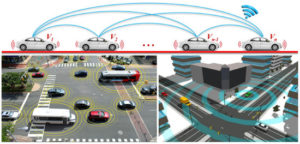A significant percentage of fleet managers will find themselves facing staggering fuel consumption figures at one point or another. If you are in the transportation and logistics industry, you know that fuel theft is an ever-present challenge. Managing fuel does not have to be a mostly ineffective, inefficient, and cumbersome process. With the use of modern wireless fuel level sensor systems, it can become a breeze to manage your fleet’s fuel.
Benefits of Wireless Fuel Level Sensing Technology
The latest wireless fuel sensing technology provides constant and real-time monitoring. This makes it simpler to detect any form of unusual changes in fuel level. This further allows you to keep track of any potential leakage or theft. The system can provide instant alerts so that you can quickly respond to issues, protecting your fuel supplies.
In businesses and settings where fuel theft can be a major issue, such as in large fleets and remote construction sites, the capability to preemptively detect fuel theft can prove to be invaluable.
The benefits of wireless fuel level sensing go beyond fuel theft detection. It can also help detect false and incomplete fillings. Fuel theft from diesel engine return pipe can be difficult to detect. However, such sensor technology can provide effective fuel theft detection in such scenarios as well. The system can also help detect the use of unwanted filling stations.
Problems Created by Fuel Theft
No matter how large your fleet is, the implications of fuel theft can be far-reaching. There are different ways in which your business can suffer. These include:
Operational Inefficiencies
Fuel theft can be a nuisance for companies that rely on fuel for their business operations. Besides draining your finances, fuel theft can also put your operations in disarray.
- These challenges can develop in the form of vehicle downtime and delays.
- They can impact your business’ service quality.
- Fuel loss can also affect your company’s reputation.
Additionally, the delays caused can also wear away your business competitiveness. For many companies, fuel theft can become a matter of survival.
Safety Concerns
Fuel theft can also create major safety concerns due to the hazard involved in improper fuel handling. Unauthorized handling of vehicle parts, especially fueling system components, can be dangerous for everyone.
- The chances of accidents increase when drivers are unaware of their vehicle’s condition
- The situation can put both lives and properties at risk
- When you invest in these wireless fuel sensor systems, you are ensuring your fleet’s safety and building confidence in your business
Increasing Fleet Maintenance Requirements
Another implication of fuel theft is the impact on your vehicles’ condition. When fuel tanks get tampered with or other incidences of vandalism occur, it increases the cost of fleet maintenance. Installing wireless fuel level sensing systems can help ensure any interference with the fuel system is instantly noticed and alerted.
Key Features of Wireless Fuel Level Sensing Technology
Some of the most important features of modern fuel level sensor technologies are as follows:
Constant Fuel Tank Control
Advanced fuel level sensors are designed for precision fuel level measurement. They can be used across the board and not just in vehicle tanks, but also in fixed fuel installations. These sensors can be used as part of fuel monitoring systems. They can also work as effective alternatives to the standard fuel meter. The latest units offer different output types, which enables seamless integration. Besides, you can access additional data to learn about fuel usage patterns.
Compatibility with Popular Trackers
The latest wireless fuel sensors have compatibility with Bluetooth Low Energy data transmission systems. They can work with all the major GPS and GLONASS trackers from brands including:
- Teltonika
- Neomatic
- Navtelecom
- Queclink
- Vega-Absolute
- Galileosky
- Glomos
- Fort Telecom
- GLONASSsoft
- Disk Systems LLC
- Ruptela
They can also be connected to satellite navigation terminals that use the RS-485 interface and support LLS protocol.
The benefits of such a high degree of telematics integration include access to accurate and real-time fuel volume data and around-the-clock monitoring, even when the engine is turned off. Some of the most advanced systems feature lithium-thionyl chloride batteries and can offer up to 7 years of continuous operation on a single battery.
Robust Construction
Preventing any kind of tampering with the sensor is an important requirement for accurate fuel theft detection. That is exactly what modern wireless fuel level sensor units are designed for. For example, some systems feature advanced hermetic shell shock protection designs. These designs offer a high level of endurance against different types of mechanical damage. Such units cannot even be impaired by deliberate attempts of disruption and power surges.
Conclusion
When it comes to dealing with fuel theft challenges, you must take proactive fleet management steps. cutting-edge solutions such as fuel level sensors help overcome such challenges. These new systems show fuel usage in real-time. This allows you to find and stop any instances of fuel stealing quickly and reliably.









Be First to Comment